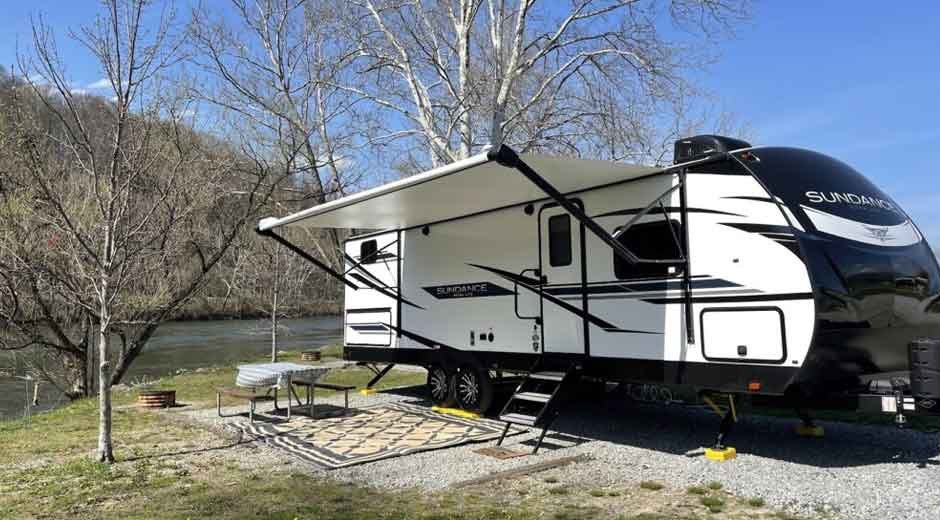Owning an RV is a dream for many—a chance to hit the open road, explore new destinations, and enjoy the freedom of traveling with the comforts of home. But just like a house or a car, your recreational vehicle needs regular care to stay reliable. Neglecting maintenance can lead to costly repairs, unexpected breakdowns, and interrupted adventures. The good news? With a simple and consistent routine, you can keep your RV running smoothly and extend its life for years of road trips ahead.
Table of Contents
Why RV Maintenance Matters
RVs combine the mechanics of a vehicle with the utilities of a small home, meaning there are more systems that require attention. From the engine and tires to plumbing and electrical wiring, all these parts need regular checkups. Staying on top of upkeep not only ensures safety on the road but also helps preserve your investment. Think of RV maintenance as an insurance policy for worry-free travel.
Essential RV Maintenance Tasks
Here are some straightforward steps every RV owner should incorporate into their routine:
1. Check Your Tires Regularly
Your tires carry the entire weight of your RV, so it’s no surprise they top the maintenance list. Inspect them before every trip for wear, cracks, or bulges. Also, make sure they’re inflated to the proper pressure, as under- or overinflated tires can lead to blowouts and poor fuel efficiency. Don’t forget to check the spare, too—you’ll be grateful it’s ready if you ever need it.
2. Inspect and Seal the Roof
The roof of your RV takes a beating from the sun, rain, and changing weather. Over time, small cracks or gaps can develop, leading to leaks that cause expensive water damage. At least twice a year, climb up and inspect the seals and seams. If you notice signs of wear, apply a sealant designed for RVs to keep things watertight.
3. Maintain Your Battery
Without a functioning battery, your RV loses much of its convenience. Keep the terminals clean and free of corrosion, and check the water levels if you have a lead-acid battery. When storing your RV, disconnect the battery or use a trickle charger to prevent it from draining. Replacing a battery is a lot cheaper than replacing electronics damaged by poor power supply.
4. Service the Engine and Generator
Just like a car, your RV’s engine needs oil changes, fluid checks, and air filter replacements. Follow the manufacturer’s schedule to avoid breakdowns. If your RV has a generator, give it the same attention—changing the oil, replacing filters, and running it regularly to keep it in good shape.
5. Flush and Sanitize the Water System
Your RV’s plumbing is what makes it feel like home, so keeping it clean is essential. At the start of each season, flush and sanitize the freshwater system to prevent bacteria buildup. Regularly check hoses for cracks and leaks, and always drain tanks properly when not in use.
6. Look After the Brakes and Suspension
Heavy loads and long drives put extra stress on your RV’s brakes and suspension. Have them inspected annually or more often if you travel frequently. Safe braking distance is especially critical when towing or carrying a full load.
7. Protect the Exterior
Keeping your RV clean goes beyond appearances—it’s an important step in preserving its exterior. Regular washing removes dirt, road salt, and grime that can damage finishes, while waxing adds a layer of protection against harsh UV rays. To maximize longevity, don’t just stop at cleaning; shield your RV when it’s not in use. Investing in a portable metal carport in Lake Charles, LA provides reliable shade and protection from the elements, helping your RV stay in top condition for years to come.
Seasonal RV Care Tips
In addition to routine maintenance, a few seasonal steps can keep your RV ready year-round:
- Before summer trips: Test the air conditioning, fridge, and propane system to avoid surprises on the road.
- Before winter storage: Winterize plumbing by draining tanks and adding antifreeze. Disconnect the battery, clean the interior, and seal off any openings to keep critters out.
Keep a Maintenance Log
One of the simplest but most effective habits is keeping a log of all services and checks you perform. Not only does this help you remember when things were last done, but it also adds value if you ever decide to sell your RV. A well-documented maintenance history shows potential buyers that the vehicle was cared for properly.
Final Thoughts
RV ownership is all about freedom and adventure, but freedom doesn’t mean skipping responsibility. By keeping up with routine maintenance, you’ll avoid headaches, save money in the long run, and ensure your rolling home is always ready for the next journey.
So, before you pack up for your next big trip, take some time to give your RV a little TLC. It’s a small investment of time and effort that will pay off with smooth travels and endless memories.
